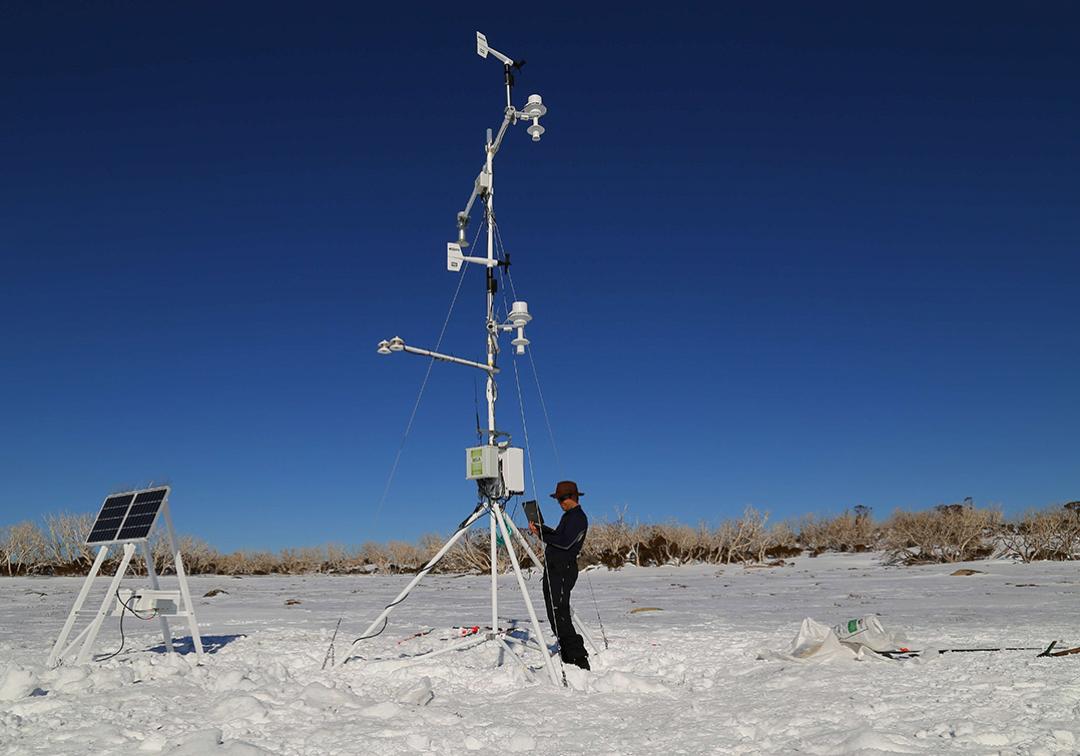
Understand the impacts of climate change and devise strategies to improve sustainability, manage ecosystems and preserve global biodiversity.
Learn how to describe, monitor and predict environmental processes and the effects of human activity on physical and biological environments.
Gain the scientific knowledge and practical experience in ecology, conservation, environmental toxicology, natural resources and decision science necessary to understand and manage our changing planet.
You'll combine your scientific skills with knowledge of legal, political and social aspects of environmental management.
Undertake extensive, practical field-based experiences in diverse subtropical and tropical ecosystems, including World Heritage rainforests, the Great Barrier Reef, North Stradbroke Island and outback Australia.
Upon graduating as a qualified environmental scientist, you'll find employment opportunities throughout industry, government and other sectors, and enjoy the personal and professional satisfaction of safeguarding our environment.
Career possibilities
Our programs prepare you for your first job and beyond. Here are some of the careers you could be on your way to:
- Environmental adviser
- Water quality specialist
- Research scientist
- Impact assessment scientist
- Toxicology consultant
- Water quality specialist
Average annual salary range
Sustainability Officer
seek.com.au
Average annual salary range
Environmental Scientist
seek.com.au
Next steps after graduation
As a graduate, you will contribute to environmental decision-making and management, and address global environmental challenges. You can find employment in organisations and sectors such as:
- consultant companies dealing with environmental monitoring, impact assessment and management
- government agencies, nationally and internationally
- mining industries
- private companies, providing sustainability advice
- natural resource management, including coastal, river and catchment systems
- national parks and wildlife conservation
- policy development for government
- teaching and research
- environmental tourism
- international agencies.
Because of our strong research profile, many of our graduates choose to further their research ambitions by enrolling in Master of Philosophy or PhD programs, where they continue developing their research skills and make significant contributions to knowledge.
Events
See all events
9 June
Master of Physiotherapy information webinar
Stories
See all stories
Study tips
Why choose UQ for environmental studies?
6-minute read

UQ people
Turning her curiosity into a healthcare career
4-minute read
Stories
See all stories
Study tips
Why choose UQ for environmental studies?
6-minute read

Uni life
The 6 best reasons to live and study in Brisbane
5-minute read
How you'll learn
Your learning experiences are designed to best suit the learning outcomes of the courses you choose.
- Lectures
- Tutorials
- Laboratory work
- Fieldwork
- Workshops
What you'll study
At UQ, subjects are called 'courses'. Here's a sample of the courses you could study:
- Pollution Science
- Environmental Bioanalytics
- Environmental Impact Assessment
Keep up to date
Sign up to get information about applying and studying at UQ.



